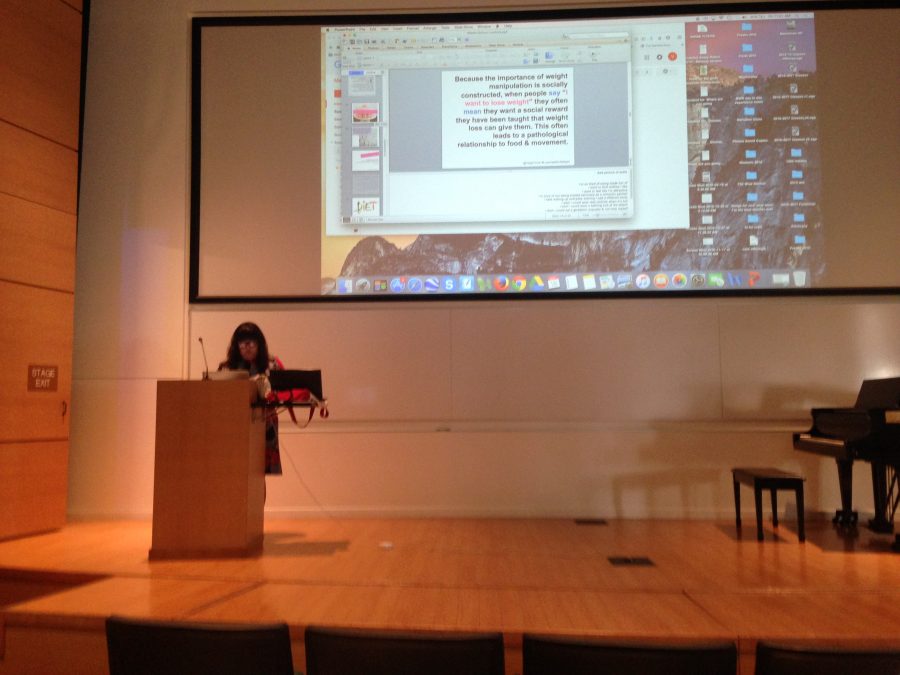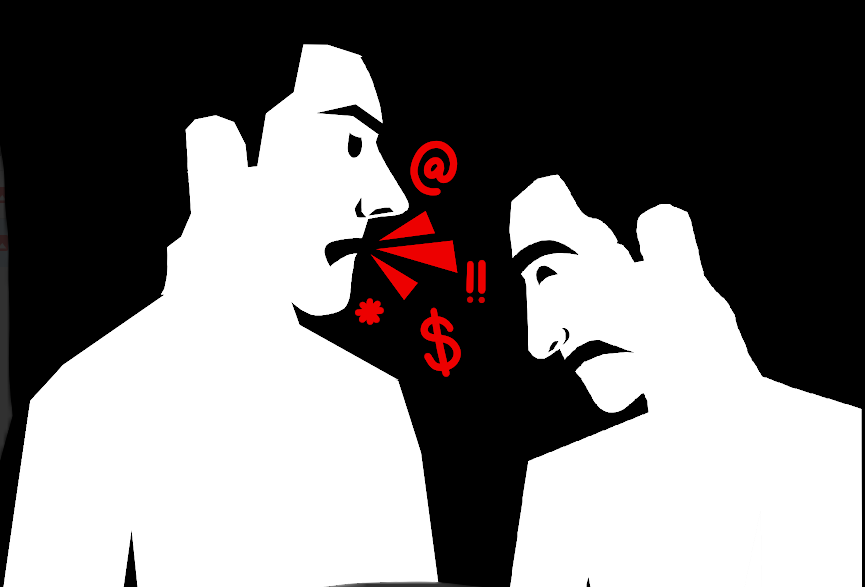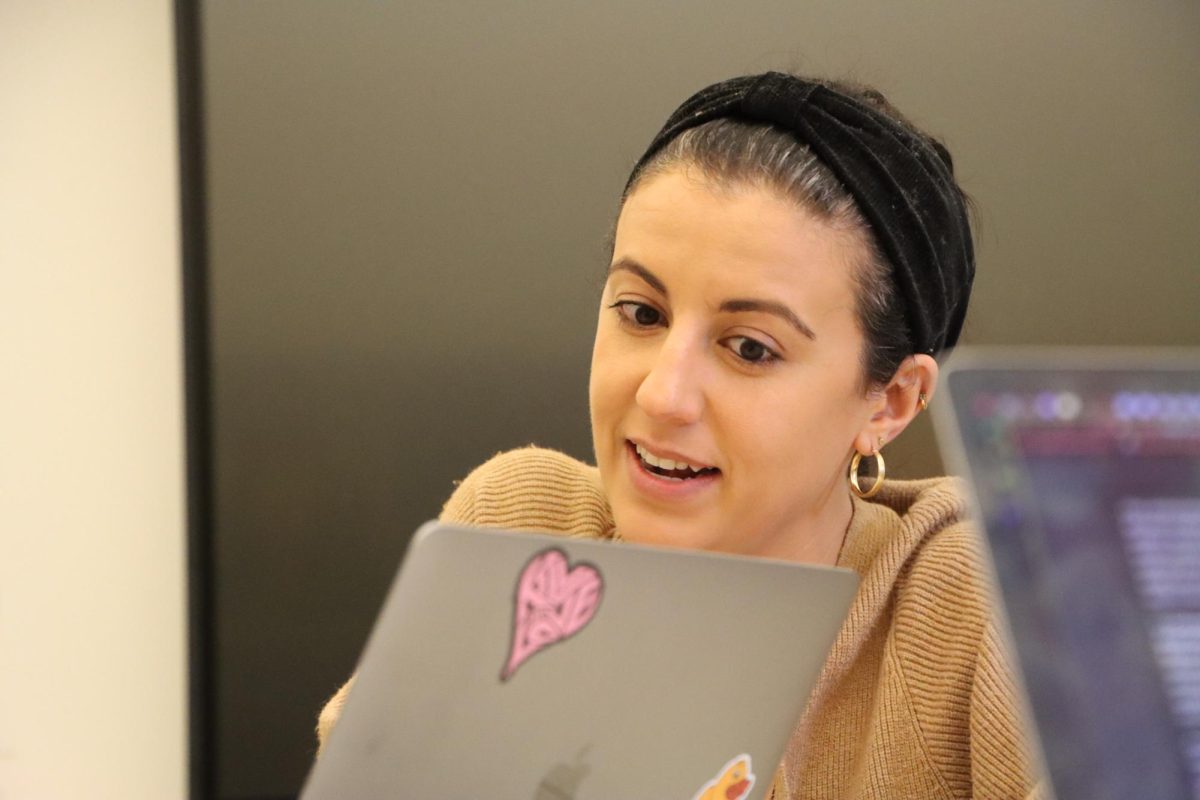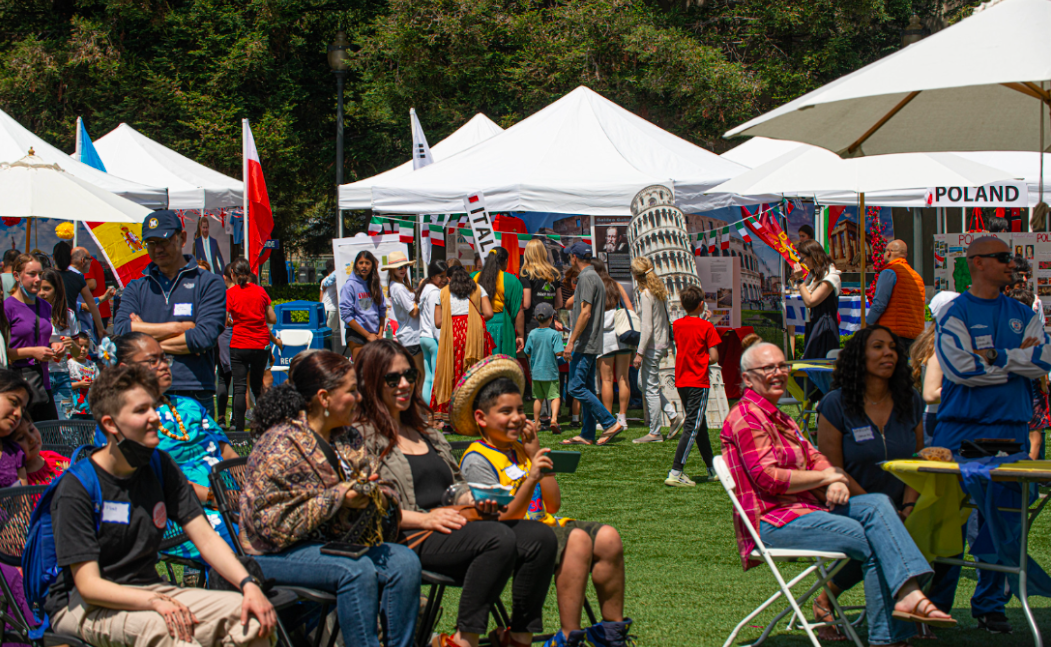Body image activist Virgie Tovar presented at Menlo last week. Tovar shares her story with the audience, urging them to overcome their natural biases and end fat phobia. Staff photo: Kaitlyn Tom.
By Kaitlyn Tom
On Friday Nov. 18, body image activist Virgie Tovar spoke in Martin Family Hall during lunch, sharing her personal story with students and giving advice on how to recognize and prevent body shaming.
Tovar aimed for her presentation to educate the students and faculty about how to limit body shaming. “The objectives for today are to interrogate our position bias, to identify what diet culture, fat phobia, and fat shaming are, [and] to denaturalize fat phobia and weight surveillance by [learning] weight neutral practices,” Tovar said.
Tovar began with a series of questions intended to help students discover their personal bias, such as: “Do you believe that thin women and men are naturally happier than fat people?” and
“Do you believe that all people should be below a certain weight?”
If students and faculty answered yes to these questions, that showed that they had a natural bias. “If you answered yes […] to any of these questions, chances are, you have an internalized notion of fat phobia,” Tovar said.
Tovar also explained how she became interested in being a body image activist. “I was born into a fat family, I was a fat kid. […] In kindergarten, […] I was introduced to older kids,” Tovar said. “This was the turning point for me. […] I started being introduced to the idea that I’m a fat person,” Tovar said. Through her experiences with feminist groups at her alma mater, UC Berkeley, and her relationships, Tovar saw the necessity to destigmatize the hate and phobia surrounding larger body sizes.
Through her campaigns, like her social media campaign #losehatenotweight, Tovar has experienced mixed reactions from some. “It’s really fascinating […] because there’s different kinds of trolling. There’s the really straight forward misogynist trolling […]. [There exists] this idea that women are only human through the desire for men to want to have sex with us, [which is…] extremely false,” Tovar said. “Another type of troll are the health trolls who say ‘you’re killing yourself […] and I’m paying for your health insurance.’ […] The third kind [are people who say] ‘your grasp on reality is tenuous.’”
Additionally, Tovar drew a parallel between body weight and health issues. “What we found is that fat shaming and policing people around their health doesn’t actually lead to weight loss. […] It leads to other really horrible outcomes like depression, eating disorders, [and] reduced self esteem,” Tovar said.
“[There was a study] that found that weight discrimination was associated with an increase of mortality risk of nearly 60% of participants. [Discrimination…] just ends up causing stress which leads up to causing all these other cardiovascular problems,” Tovar said.
Students were interested by Tovar’s unique perspective on body shaming. “Fat-shaming is not just referring to judgemental and mean comments about a person’s weight and body. It also includes compliments about how someone looks like they have lost weight, which implies that you are watching and noticing that person’s weight,” senior Sophia Davirro said.
Students who attended the lunchtime session felt that Tovar’s message was applicable to them. “I think all the women in the room, including myself, felt personally connected [to] her topic, because body image is something girls especially deal with,” Davirro said.
The discussion about body-shaming was mainly in the context of women being body-shamed, and some students wanted to go more in depth about the body-shaming that other groups of people receive as well. “I wish she had included more about the body shaming of skinny people or the body shaming of boys, but I understand that that was not her experience so it make sense that she focused on her story,” president of Gender Equality Matters club sophomore Sara Hewitt said.
While mainly female faculty and students attended the presentation, not very many male students and faculty attended the presentation. “I think most guys didn’t go because I don’t think guys are as self conscious as their body as girls are,” junior Jojo Bachechi-Clark, who attended the event, said. “I found it interesting that [Tovar] described that a lot of shame women feel [about] their body is due to them trying to appeal to men. So even though guys themselves don’t feel self conscious about their bodies, I think it’s important for guys to go to talks like [Tovar’s].”
Students believe that Tovar’s message to not body shame women should be applied to the Menlo community as well. “She mentioned that one of the main factors in her experience of finding her confidence was having an ally, and I think we all need to be allies for each other,” Hewitt said.








